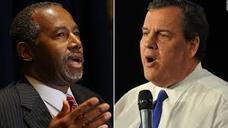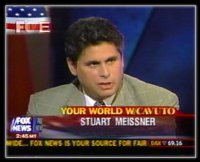|
This month the NY Times reported on a former JP Morgan Chase broker Johnny Burris, a large producer for the firm who internally raised issues with JP Morgan for pressuring its sales people to promote their own proprietary mutual funds over other funds which were more suitable for his clients. He reportedly taped conversations and complained repeatedly to his supervises before he was suspended and the fired based on what he said was fictional allegations in a U5 filing of the catch all "failing to follow firm procedures" and allegedly improperly marking an order as unsolicited when it was solicited. Most of his clients were retirees who were unsophisticated about the financial markets. RETALIATION Mr. Burris then took his evidence and recordings related to the sales pressure to the SEC and reported the same to the press , recordings and all made available to the public, and he apparently filed a claim of wrongful termination against JP Morgan Chase. What followed was what appears to be blatant retaliation by JP Morgan Chase in what appears to be a crusade to attempt to ruin Mr. Burris by incredibly instigating and even drafting at least two customer complaints against him so as to report such on his FINRA Broker Check and CRD system. By reporting three complaints, not only did such apparently negatively impact his pending wrongful discharge arbitration against JP Morgan Chase back in 2014, but such meant that he required heightened supervision with any new employer, making him toxic to many potential firms, even if his whistleblower status didn't already make him such. Adding insult to injury, the NY Times confirmed what appears to have been blatant perjury by his supervisor during the arbitration in denying that anyone at JP Morgan drafted any of the subject complaints and then later in response to the NY times this year JP Morgan admitted, contrary to such prior sworn testimony, that one of Mr. Burris' colleagues actually assisted clients "as a courtesy" in drafting the complaints. Clients that the Times spoke to denied that JP Morgan Chase even read back the complaints that JP Morgan drafted for them "as a supposed courtesy" and disputed the events, saying they signed the complaints without realizing what they said at the encouragement of the JP Morgan representative telling at least one that they "could get some money back" by signing (it appears JP Morgan then did provide about $8,000 to one of the clients without consulting Mr. Burrus as supposed compensation for a incorrect transaction and at the same time assisting themselves in defending against his wrongful termination claim). Although JP Morgan claims that the supervisor who denied that anyone at JP Morgan drafted the complaints, was unaware that such was in fact the case, nevertheless she apparently testified affirmatively (and turns out incorrectly) that no one at JP Morgan had done so. Which means she in effect testified that she knew for a fact what she was testifying to (which now they concede she did not) and if she did not know, as she clearly did not, she should have simply testified that she did not know, but instead chose to mislead the arbitration panel into thinking both that she knew all the facts and that she knew that no one at JP Morgan drafted the complaints, and such was thus false testimony. More troubling is that the JP Morgan representative who had contacted the clients, instigated and actually drafted the false complaints was on their witness list and was interviewed by JP Morgan's attorneys, but not surprisingly was never called to testify by them as it would appear that she would have contradicted their other witness who insisted no one at JP Morgan had drafted such complaints. To the extent the JP Morgan attorneys were aware of such information when the supervisor had testified it would appear they would have violated their ethical obligation not to solicit perjury and misleading a tribunal. However, this does not explain why Mr. Burris' own attorney did not call such JP Morgan witness on his own which he easily could have done, if he had contacted and spoken with the subject clients in preparing for the hearing to know of her existence and substantial relevance to the case.  ATTORNEY DROPPING THE BALL - DIFFERENCE BETWEEN HAVING A "BEN CARSON" TYPE OF ATTORNEY AND A "CHRIS CHRISTIE" TYPE OF ATTORNEY According to the update to the NY Times Story Mr. Burris' lawyer told him not to talk to the subject clients during the proceeding which he apparently lost probably because of those very complaints which turned out to be fictional and created by JP Morgan contrary to their testimony. We assume then that the lawyer himself did not bother to speak to the subject clients which boggles the mind as to why. According to the story two of the complaints had the exact same typefaces and appeared to come from the same printer. As such, why the attorney himself did not bother to reach out and interview these clients as potential witnesses and possibly call them as witnesses to contradict what JP Morgan presented is unknown, but appears to be a dropping of the ball, big time. In our opinion such could have made all the difference to Mr. Burris as it would appear such FINRA arbitration and the damages he could obtain from the proceeding was critical to his financial future. According to the article Mr. Burris, after he lost his arbitration, had later obtained, on his own, sworn affidavits from both clients he spoke with, which in itself could have been very very helpful in cross examining JP Morgan's witness. In our view such could have not only resulted in a large award in his favor, but significant punitive damages as well, in his FINRA arbitration, instead of the big fat zero he received. LESSONS Apparently, now unemployed and having difficulty finding any employment, Mr. Burris has filed a compliant with FINRA Enforcement and the SEC Whistle-blower Office for retaliation. Frankly, if this is not retaliation then there is no such thing as retaliation. We will be following what if anything FINRA and the SEC Whistle-blower office does with these unfortunate actions taken by licensed representatives at one of the largest financial institutions in the country, but on the surface what took place is outrageous and without severe ramifications the very wrong message will be sent to the industry and to whistle-blowers across the country. Based on the facts, not only should the employees involved in both the creation of the false complaints and the presentation of false testimony lose their licenses, but criminal charges should seriously be considered including perjury and falsification of business records (one of the false complaints were maintained in JP Morgan records). In addition, the SEC should take enforcement action against JP Morgan Chase for retaliation against an SEC whistle-blower and seek a large multi-million dollar fine for their actions (in addition to the underlying whistle-blower matter). In addition, it would appear that the attorneys for JP Morgan could be subject to a Bar disciplinary complaint in presenting testimony which they may have known to have been false. Just this week the SEC announced it settled an enforcement action against JP Morgan Chase for inadequate disclosures related to the sale of their products for a possible a humongous 307 million dollar fine. If Mr. Burris is deemed an SEC whistle-blower who provided original information which led to such settlement he could be in for a large payday of 10-30% of the settlement and would obviously have the last laugh (although based on press reports it appears he may not be alone in relation to having provided information leading to such action, so the reward may be divided). Only time will tell as our own select whistle-blower clients can attest to. Unfortunately, none of this is in the control of Mr. Burris. The one proceeding that Mr. Burris had control over was his FINRA arbitration claim for wrongful discharge and retaliation and it would appear his attorney failed him in not doing proper due diligence in preparing for the hearing, speaking to critical witnesses, obtaining affidavits locking such witnesses in, calling them to testify and properly cross examining JP Morgan witnesses. As a former prosecutor, we were always trained that one must always question, explore and follow up with any suspicious evidence presented by any firm in any arbitration proceeding and not simply accept such on face value. Just as when another large Wall Street firm, Morgan Stanley, presented falsified computerized notes to us in another FINRA arbitration, which notes looked too good to be true for them, we carefully went about proving they were falsified, and obtained an order for a forensic examination of Morgan Stanley computers, all resulting in their admitting to such falsification by the broker, the subject broker being discharged, and a satisfied client. At this point it would seem that Mr. Burris still could consider filing another arbitration against the individuals involved in the manufactured complaints and the false testimony presented which likely impacted his lost hearing, and if he does, we hope he chooses his counsel more wisely. This case is a perfect example of why the selection of an attorney in any matter involving one's entire future career is essential and it is not the time to be penny wise and pound foolish. Stuart D. Meissner Esq, Meissner Associates, Nationwide Representation Free Phone Consult - 212-764-3100
0 Comments
Your comment will be posted after it is approved.
Leave a Reply. |
AuthorStuart D. Meissner Esq. is an experienced FINRA attorney who has practiced law for over 27 years, including as a FINRA Attorney, Securities Regulator and Prosecutor. Archives
September 2022
Categories
All
|
|
Disclaimer: Prior results cannot and do not guarantee or predict a similar outcome with respect to any future matter, including yours, in which a lawyer or law firm may be retained. The information you obtain at this site is not, nor is it intended to be, legal advice. You should consult an attorney for individual advice regarding your own situation.
|

 RSS Feed
RSS Feed
